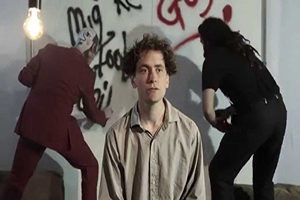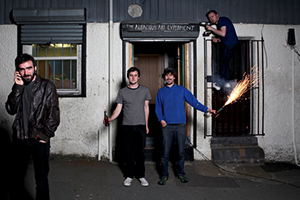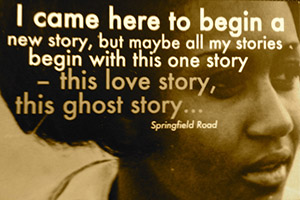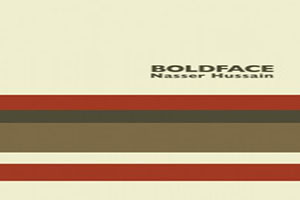
“a slinky, kaleidoscopic maelstrom”
“above all, incatalogabile”
“a young John Malkovich playing David Tibet playing Jake Thackray in his best stage voice”
Just some of the words used to describe Alabaster DePlume who will be joining us to celebrate the Wordlife 9th birthday on 27th November. Here are a few words form the man himself…
After recently releasing your third LP ‘Peach’, how would you say you and your writing / performing have evolved over your career?
I’ve probably become less patient. We put up with a lot of fuss in youth that gradually becomes more forgettable to us, and we concentrate on bigger things. So performance becomes more sincere, and closer to oneself, as little concerns fall away, and you become able to forget yourself. Also, there was a point roughly in 2011 when I took up collaboration and inclusion of people as a central part of what I wanted to achieve. Those are the main things, I’d say.
Why the name Peach?
Peach is a euphemism for ‘bum’, and I enjoyed the idea of calling the thing I’ve spent years making, “my peach”. To see who laughed, and who kept quiet. But also, in the fruit, the peach, there is a hard stone that we throw away, that we consider a nuisance. But this stone is the whole reason why the fruit is there in the first place – it’s a seed. All the same we don’t want it. So there are parts of life that are like this, crucial but inedible. This is what the material on the record is intended to talk about, these contradictions.
As someone that is established over several mediums, often combining them, when approaching a new project, how do you categorise it?
It’s probably best to start the project thinking about what the project is about, and only categorise it later, when it’s been made. Except when applying for funding, in which case it depends on the brief…

You’re a very competent collaborator, how would you say the process of collaboration affects your work?
Thank you very much, that’s kind of you. I love collaborating. Two parties that have different aims, both failing to achieve what they wanted to achieve, can create together by accident a thing that one individual could never do. The more sides something has, the better it stands up. Where the people involved in a project identify with and own their part in it, they work with all their soul and personality. A piece of music is a nice thing, it passes the time. But a human being is infinite. The more genuine personality you can get into your work, I say, the more valid the work is. Perhaps I’m using collaboration to distract from my own responsibilities as an artist? To deflect from my own expressions? Maybe. Currently I’d say I use it as an extension of myself. Basically, if there’s quality in my work, it’s thanks to collaboration.
If you could only be remembered by one thing that you’ve done, which would it be, and why?
Something I’ve no memory of. Some occasion or occurrence where I just did something with or to someone that was meaningful. Because I’m contrary. But also because I think that the best things we do in this life, we have no notion of. Perhaps we were misheard by someone listening in on our drunken conversation, and they changed their mind about something and went on to influence some great change in history. It’s the same for the bad things we do. To try and consciously painstakingly achieve good, day to day, is a futile waste of energy. The best we can do is keep in mind what we stand for, and be a voice for it, and have faith. So I’d like to be remembered for something that I do not remember myself.
What do you have planned for the upcoming future?
Never talk about a work in progress. But I’ll be collaborating, on a bunch of projects. With a puppeteer, a director, a rapper, a film-maker, and musicians. Before this we have a big show in London to celebrate Peach, on the 1st Dec, at the Total Refreshment Centre, where I’m bringing together the best people I possibly can, and making as fine a time as I can manage. Come and join in.
For the aspiring writers reading, what would you say is the key ingredient in a successful writing career?
The idea of a ‘successful writing career’ is subjective, and I’d say that for each ‘successful writer’ there is a unique ‘path to success’. When people ask me, “should I be doing this (making art) with my life?” I say no! Certainly not! Do something sensible with your time, have you any idea how precarious this is? Do you think you can expect it to get better? No! If you can do something else, go and do it. I can’t. I’ve tried, but I must do this. A successful writer is someone who has written something today, and is still breathing. Waiting for permission is ruin, no one will give you permission, you must create your own. Perhaps then the key ingredient is to write.
Interview by Charlie Sellings.



